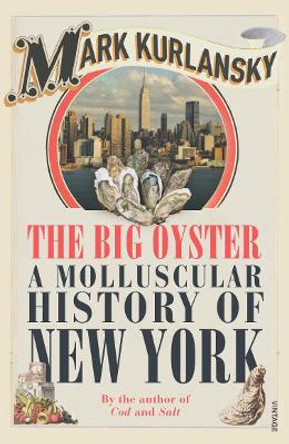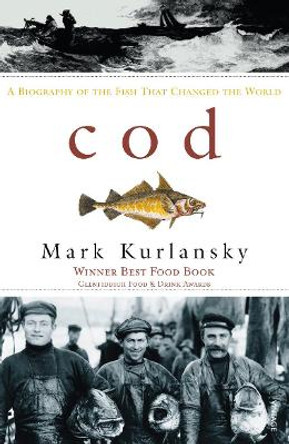Description
Big lies are told by governments, politicians and corporations to avoid responsibility, cast blame on the innocent, win elections, disguise intent, create chaos and gain power and wealth. Big lies are as old as civilisation. They corrupt public understanding and discourse, turn science upside down and reinvent history. They prevent humanity from addressing critical challenges. They perpetuate injustices. They destabilise the world.
The modern age has provided ever-more-effective ways of spreading lies but it has also given us the scientific method, which is the most effective tool for finding what is true. In the book's final chapter, Kurlansky reveals ways to deconstruct an allegation. A scientific theory has to be testable and so does an allegation.
BIG LIES soars across history: alighting on the "noble lies" of Socrates and Plato; Nero blaming Christians for the burning of Rome; the great injustices of the Middle Ages; the big lies of Stalin and Hitler and their terrible consequences; the reckless lies of contemporary demagogues, which are amplified through social media; lies against women and Jews are two examples in the long history of "othering" the vulnerable for personal gain; up to the equal-opportunity spotlight in America.
"Belief is a choice", Kurlansky writes, "and honesty begins in each of us. A lack of caring what is true or false is the undoing of democracy. The alternative to truth is a corrupt state in which the loudest voices and most seductive lies confer power and wealth on grifters and oligarchs. We cannot achieve a healthy planet for all the world's people if we do not keep asking what is true."
A YA nonfiction guide to the big lies told through history, and how to recognize them on social media today.
About the Author
Mark Kurlansky worked as a commercial fisherman, longshoreman, paralegal, cook, pastry chef, and playwright, then traveled the world as a journalist and foreign correspondent for The International Herald Tribune, The Chicago Tribune, The Miami Herald, and The Philadelphia Inquirer. Based in Paris and then Mexico, he reported on Europe, West Africa, Southeast Asia, Central America, Latin America, and the Caribbean from 1976 to 1991. His thirty-four books for adults and young readers include four New York Times bestsellers (Cod; Salt; 1968; and The Food of a Younger Land) and have been translated into thirty languages. He has received a James Beard Award for Food Writing, a Bon Appetit American Food and Entertaining Award for Food Writer of the Year, and the Glenfiddich Food and Drink Award for Food Book of the Year. A master storyteller, Kurlansky is equally adept at writing for children and adults. The New York Times called World Without Fish "a compelling narrative for young people." Eric Zelz is a designer, illustrator, and educator whose work has been recognized by organizations including the Society of Environmental Journalists and the Society of News Design. His illustrations for three Tilbury House picture books (Pass the Pandowdy, Please; Read This Book If You Don't Want a Story; and My Monster Moofy) have received awards and starred reviews. See more at ericzelz.com.
Book Information
ISBN 9780884489139
Author Mark Kurlansky
Format Paperback
Page Count 320
Imprint Tilbury House,U.S.
Publisher Tilbury House,U.S.
Weight(grams) 675g
Dimensions(mm) 229mm * 178mm * 20mm









